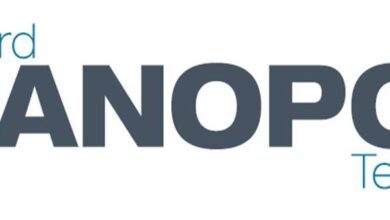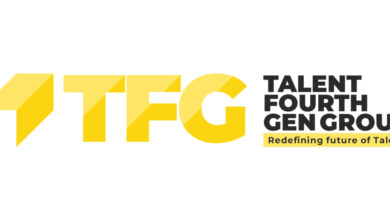Kala Pharmaceuticals Announces EYSUVIS® Now Covered by OptumRx
— EYSUVIS Added to OptumRx Commercial Formularies Effective May 21, 2021 —
— Expands Total Commercial Coverage for EYSUVIS to More Than 88 Million Lives —
WATERTOWN, Mass.–(BUSINESS WIRE)–Kala Pharmaceuticals, Inc., (NASDAQ:KALA), a biopharmaceutical company focused on the discovery, development and commercialization of innovative therapies for diseases of the eye, today announced that OptumRx, one of the largest pharmacy benefit managers (PBM) in the United States, has added EYSUVIS (loteprednol etabonate ophthalmic suspension) 0.25% as a covered brand on its commercial formularies, effective May 21, 2021.
“We are pleased to announce the addition of EYSUVIS to OptumRx’s commercial formularies, which represents a significant milestone towards our goal of ensuring broad market access,” said Todd Bazemore, Chief Operating Officer of Kala Pharmaceuticals. “More than 88 million people with commercial health insurance now have access to EYSUVIS. We anticipate this figure will continue to grow from our ongoing efforts with Commercial and Medicare Part D health plans, as we work towards our ultimate goal of delivering broad payer coverage for EYSUVIS to the millions of people in the United States who suffer from dry eye disease.”
EYSUVIS was approved by the U.S. Food and Drug Administration (FDA) in October 2020 as the first and only prescription therapy indicated specifically for the short-term (up to two weeks) treatment of the signs and symptoms of dry eye disease. Kala commenced the promotional launch of EYSUVIS in the United States in January 2021. EYSUVIS is available through both national and regional U.S. pharmaceutical distribution centers, as well as local retail pharmacies or home delivery.
About EYSUVIS
EYSUVIS (loteprednol etabonate ophthalmic suspension) 0.25% is approved for the short-term (up to two weeks) treatment of the signs and symptoms of dry eye disease. EYSUVIS utilizes Kala’s AMPPLIFY® mucus-penetrating particle (MPP) Drug Delivery Technology to enhance penetration of loteprednol etabonate (LE) into target tissue of the ocular surface. In preclinical studies, the AMPPLIFY Drug Delivery Technology increased delivery of LE into target ocular tissues more than three-fold compared to an active LE comparator by facilitating penetration through the tear film mucins. EYSUVIS was approved by the FDA on October 26, 2020. Kala believes that EYSUVIS’ broad mechanism of action, rapid onset of relief of both signs and symptoms, favorable tolerability and safety profile and the potential to be complementary to existing therapies, offer a differentiated product profile for the short-term treatment of dry eye disease, including the management of dry eye flares.
EYSUVIS Important Safety Information
EYSUVIS, as with other ophthalmic corticosteroids, is contraindicated in most viral diseases of the cornea and conjunctiva including epithelial herpes simplex keratitis (dendritic keratitis), vaccinia, and varicella, and also in mycobacterial infection of the eye and fungal diseases of ocular structures. The initial prescription and each renewal of the medication order should be made by a physician only after examination of the patient with the aid of magnification, such as slit lamp biomicroscopy, and, where appropriate, fluorescein staining. Prolonged use of corticosteroids may result in glaucoma with damage to the optic nerve, as well as defects in visual acuity and fields of vision. Corticosteroids should be used with caution in the presence of glaucoma. Renewal of the medication order should be made by a physician only after examination of the patient and evaluation of the IOP. Use of corticosteroids may result in posterior subcapsular cataract formation. Use of corticosteroids may suppress the host response and thus increase the hazard of secondary ocular infections. In acute purulent conditions, corticosteroids may mask infection or enhance existing infection. Use of a corticosteroid medication in the treatment of patients with a history of herpes simplex requires great caution. Use of ocular corticosteroids may prolong the course and may exacerbate the severity of many viral infections of the eye (including herpes simplex). Fungal infections of the cornea are particularly prone to develop coincidentally with long-term local corticosteroid application. Fungus invasion must be considered in any persistent corneal ulceration where a corticosteroid has been used or is in use. The most common adverse drug reaction following the use of EYSUVIS for two weeks was instillation site pain, which was reported in 5% of patients.
Please see full Prescribing Information at www.eysuvis.com
About Kala Pharmaceuticals, Inc.
Kala is a biopharmaceutical company focused on the discovery, development, and commercialization of innovative therapies for diseases of the eye. Kala has applied its AMPPLIFY® mucus-penetrating particle (MPP) Drug Delivery Technology to two ocular therapies, EYSUVIS® (loteprednol etabonate ophthalmic suspension) 0.25% for the short-term (up to two weeks) treatment of signs and symptoms of dry eye disease and INVELTYS® (loteprednol etabonate ophthalmic suspension) 1% for the treatment of post-operative inflammation and pain following ocular surgery. The Company also has a pipeline of pre-clinical development programs targeted to address unmet medical needs, including both front and back of the eye diseases. For more information on Kala, please visit www.kalarx.com.
Forward Looking Statements
This press release contains forward-looking statements within the meaning of the Private Securities Litigation Reform Act of 1995, that involve substantial risks and uncertainties, including statements regarding the Company’s anticipated growth of payer coverage from its ongoing efforts with Commercial and Medicare Part D health plans and the Company’s goal of ensuring broad market access. All statements, other than statements of historical facts, contained in this press release, including statements regarding the Company’s strategy, future operations, future financial position, future revenue, projected costs, prospects, plans and objectives of management, are forward-looking statements. The words “anticipate,” “believe,” “continue” “could,” “estimate,” “expect,” “intend,” “may,” “plan,” “potential,” “predict,” “project,” “should,” “target,” “will,” “would,” and similar expressions are intended to identify forward-looking statements, although not all forward-looking statements contain these identifying words. The Company may not actually achieve the plans, intentions or expectations disclosed in its forward-looking statements, and you should not place undue reliance on such forward-looking statements. Actual results or events could differ materially from the plans, intentions and expectations disclosed in the forward-looking statements as a result of various risks and uncertainties including, but not limited to: the impact of extraordinary external events, such as the current pandemic health event resulting from the novel coronavirus (COVID-19), and their collateral consequences, including disruption of the activities of the Company’s sales force and the market for EYSUVIS and INVELTYS; whether the Company will be able to successfully implement its commercialization plans for EYSUVIS and INVELTYS; whether the market opportunity for EYSUVIS and INVELTYS is consistent with the Company’s expectations and market research; the Company’s ability execute on the commercial launch of EYSUVIS on the timeline expected, or at all, including obtaining Commercial and Medicare Part D payor coverage; whether the Company will be able to generate its projected net product revenue on the timeline expected, or at all; whether the Company’s cash resources will be sufficient to fund the Company’s foreseeable and unforeseeable operating expenses and capital expenditure requirements for the Company’s expected timeline; other matters that could affect the availability or commercial potential of EYSUVIS and INVELTYS; and other important factors, any of which could cause the Company’s actual results to differ from those contained in the forward-looking statements, discussed in the “Risk Factors” section of the Company’s Annual Report on Form 10-K, most recently filed Quarterly Report on Form 10-Q and other filings the Company makes with the Securities and Exchange Commission. These forward-looking statements represent the Company’s views as of the date of this release and should not be relied upon as representing the Company’s views as of any date subsequent to the date hereof. The Company does not assume any obligation to update any forward-looking statements, whether as a result of new information, future events or otherwise, except as required by law.
Contacts
Investor Contacts:
Hannah Deresiewicz
[email protected]
212-362-1200




